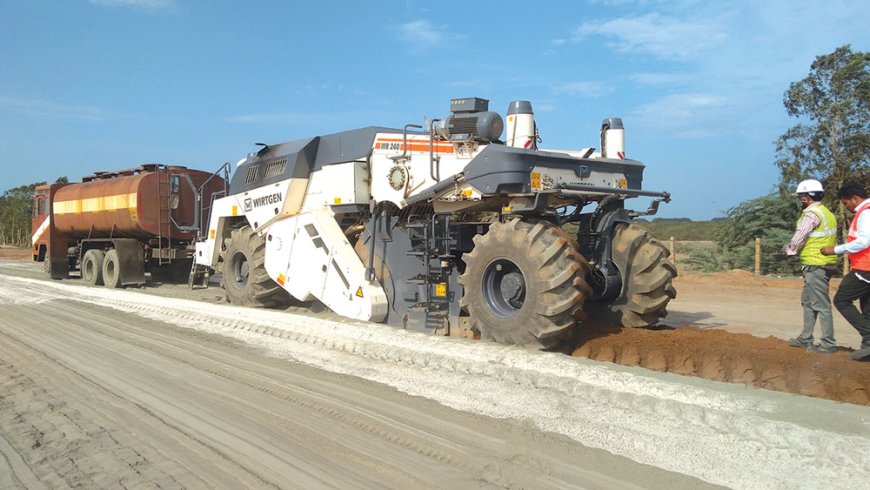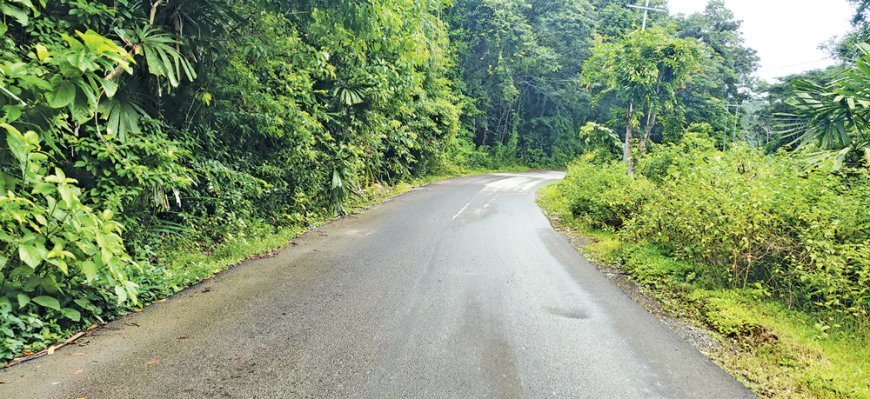We are leading significant highway development projects across India.

Shivdutt Das
The government has set a target of 2-lakh km NH network by 2037. How do you compare the goal and the progress of the highway projects in India?
Infrastructure plays an import role in driving the progress and success of a nation, and the road network is a vital component of this infrastructure. We commend the National Highways Authority of India (NHAI) for its remarkable efforts in advancing the country's road network through visionary planning and efficient implementation.
The goal of constructing 2 lakh km of NH network by 2037 is undoubtedly ambitious, but we believe it is achievable given the commendable ecosystem created by NHAI. NHAI's initiatives have streamlined processes such as contractor scrutiny, bidding, and financing, making it easier and faster for contractors to contribute to the construction of highways across the country. The progress has been remarkable, with a noticeable increase in highways across the country, including both Greenfield and brownfield projects. NHAI's efforts have not only expanded the highway network but also significantly improved the quality of roads, setting a higher standard for road infrastructure nationwide.
The Interim Budget 2024 has allocated significant funds for roads and highways for the year 2024 -25. How do you look at the opportunities for you in the year ahead?
For infrastructure companies like ours, these allocations present ample opportunities, but our focus remains on ensuring timely project execution and delivery. At Vishwa Samudra, we take pride in our reputation for uncompromised quality and swift project completion & our commitment to complete project deadlines rapidly and consistently.
Moreover, we understand the importance of diversification, and our portfolio extends beyond roads to include other verticals such as Ports, Fishing Harbours, Urban Ropeways, and Irrigation. This diversified approach enables us to capitalize on opportunities across various sectors while maintaining a strong foothold in our core competency areas. Looking ahead, we are poised to leverage the opportunities presented by the Interim Budget allocations to further expand our presence and contribute to the nation's infrastructure development. Our focus on quality, efficiency, and diversification positions us well to maximize the benefits of the opportunities that lie ahead in the year 2024-25 and beyond.

Can you give us an overview of your ongoing highway projects and projects in the pipeline?
Currently, Vishwa Samudra Group is leading significant highway development projects across India. In Jammu, we are focused on the expansion of NH 244A, a substantial 6-lane project spanning 35.15 km, with a project investment of Rs 1,870 crore. Furthering our commitment to infrastructure development, we are actively engaged in three prominent highway projects in Kerala. These include the expansion of National Highway 17 in Kannur, covering 29.985 km with an investment of Rs 2,038 crore, the enhancement of National Highway 47 in Kollam over a distance of 31.5 km, with a project outlay of Rs 1,580 crore, and the development of National Highway 47 in Paravoor, extending across 37.5 km, with an investment of Rs 1,152 crore. These projects underscore our dedication to fostering connectivity and driving economic growth across regions.
Furthermore, I would also like to mention our company's commitment to environmentally sustainable road construction practices. Vishwa Samudra Group employs innovative German technology known as StabilRoad in our pavement design process. This technology allows us to minimize the use of stone aggregate, reducing our environmental footprint significantly. By utilizing StabilRoad, we not only cut down on carbon emissions but also play a role in preserving our natural landscapes. This approach sets us apart from other road construction companies.
How do you look at the key challenges in the roads & highways sector?
Looking at the roads and highways sector, we have witnessed significant improvements in operational efficiency, particularly due to the initiatives by NHAI. The streamlined processes have notably addressed challenges related to land acquisition and payment flow, positioning NHAI as one of the leading road construction departments globally. However, moving forward, we anticipate challenges primarily associated with the cost of raw materials and potential shortages of stone aggregate in the future.
As a company actively engaged in road construction both domestically and internationally, we recognize the importance of sustainable solutions to mitigate these challenges. Technologies like StabilRoad play a crucial role in addressing these concerns by enabling road construction using existing soil and reducing the reliance on stone aggregate by up to 85%. This not only helps in cost-saving but also promotes environmental sustainability by minimizing resource extraction.
An exemplary instance of overcoming hurdles is evident in our project in Andaman, where we constructed 90 Lane km of highway in 2021. In this project, we minimized the use of stone aggregate from the mainland by utilizing existing soil, showcasing our innovative approach and commitment to sustainable infrastructure development.

What are the technological advancements happening in road and highway construction?
In road and highway construction, there's a lot of progress happening with new technologies. NHAI has been leading the way by bringing in new tech and encouraging progress in the industry. In addition to this, road construction companies have been highly innovative in coming up with path-breaking technologies, just like how Vishwa Samudra introduced additive-based technology in road pavement design with StabilRoad.
Alongside, road construction companies are also trying out new ideas for building safer and more eco-friendly roads. They're using special materials like steel-processed slag or recycled plastic to make roads stronger and greener, following the idea of turning waste into wealth. New technologies are changing how roads are made and managed. Things like sensors, microchips, and advanced electronics are being used to make roads smarter and more efficient. Some are even exploring using solar power to move vehicles, showing a commitment to sustainability. FASTag has made paying tolls much easier for everyone, which is a significant step forward. And in the future, artificial intelligence (AI) could bring even more changes in how roads are built and run.
What are the sustainability practices being adopted in your projects?
In our road projects, be it rural roads, state highways, or national highways, we prioritize sustainability by incorporating green technology from Germany called StabilRoad. This technology utilizes a 100% natural mineral-based additive, activating the existing soil surface and eliminating the need for stone aggregate. This not only accelerates the curing process, ensuring faster project completion but also reduces the need for mountain blasting or mining, thus preserving our natural landscapes and reducing carbon emissions from road trips.
We employ a process called Full Depth Recycling/Reclamation, where the existing soil surface is pulverized with the additive and cement. This creates a strong sub-base that surpasses required standards and withstands various weather conditions. Moreover, the robust sub-base prevents water seepage, ensuring long-lasting road infrastructure. The implementation of this process involves the use of 8 machines consecutively, with minimal human labor involved in machine operation. This ensures precision and consistency throughout the construction process, leading to high-quality road surfaces similar to those found in the USA, UK, and Europe.

How are you devising your growth plans for the future? How are you looking forward to meeting your goals?
Our growth plans revolve around completing projects punctually and upholding superior quality standards. We aim to undertake captivating projects both domestically and internationally, leveraging our expertise and experience to address various challenges. Whether it's constructing new highways, rehabilitating rural roads, or building airport runways, we strive to add value and solve problems effectively.
Our track record of achieving an order book of Rs 18,000 crores in less than three years speaks volumes about our commitment and capability. We are determined to sustain this momentum and continue expanding our order book at a steady pace.







